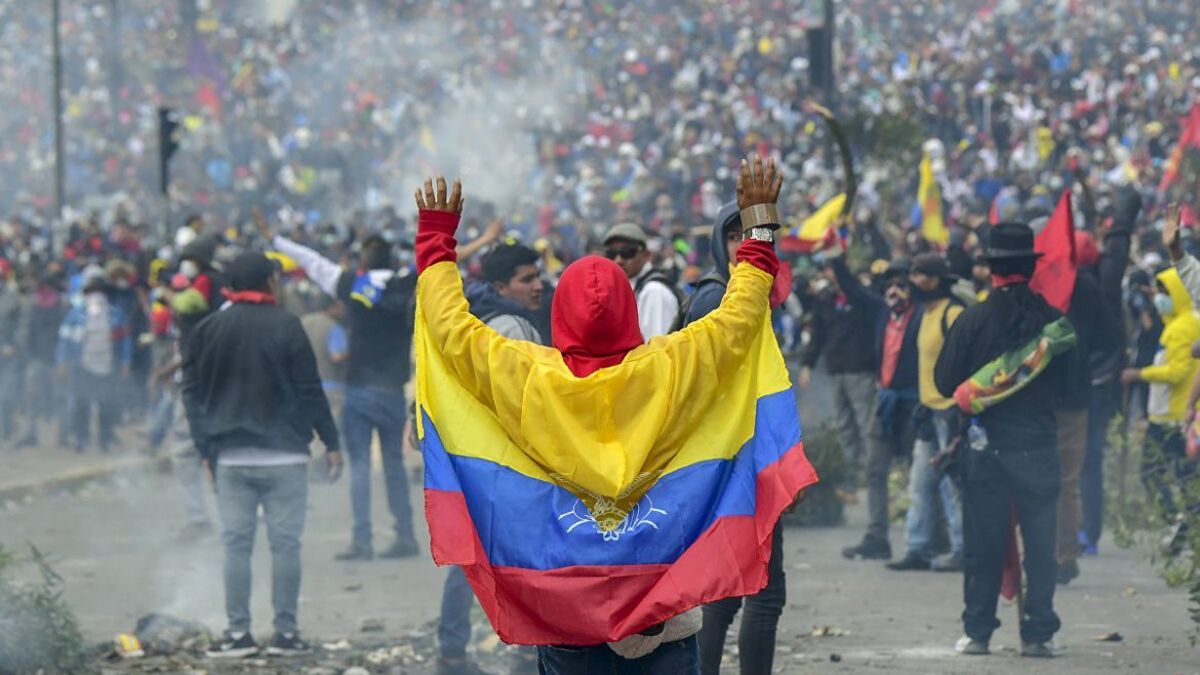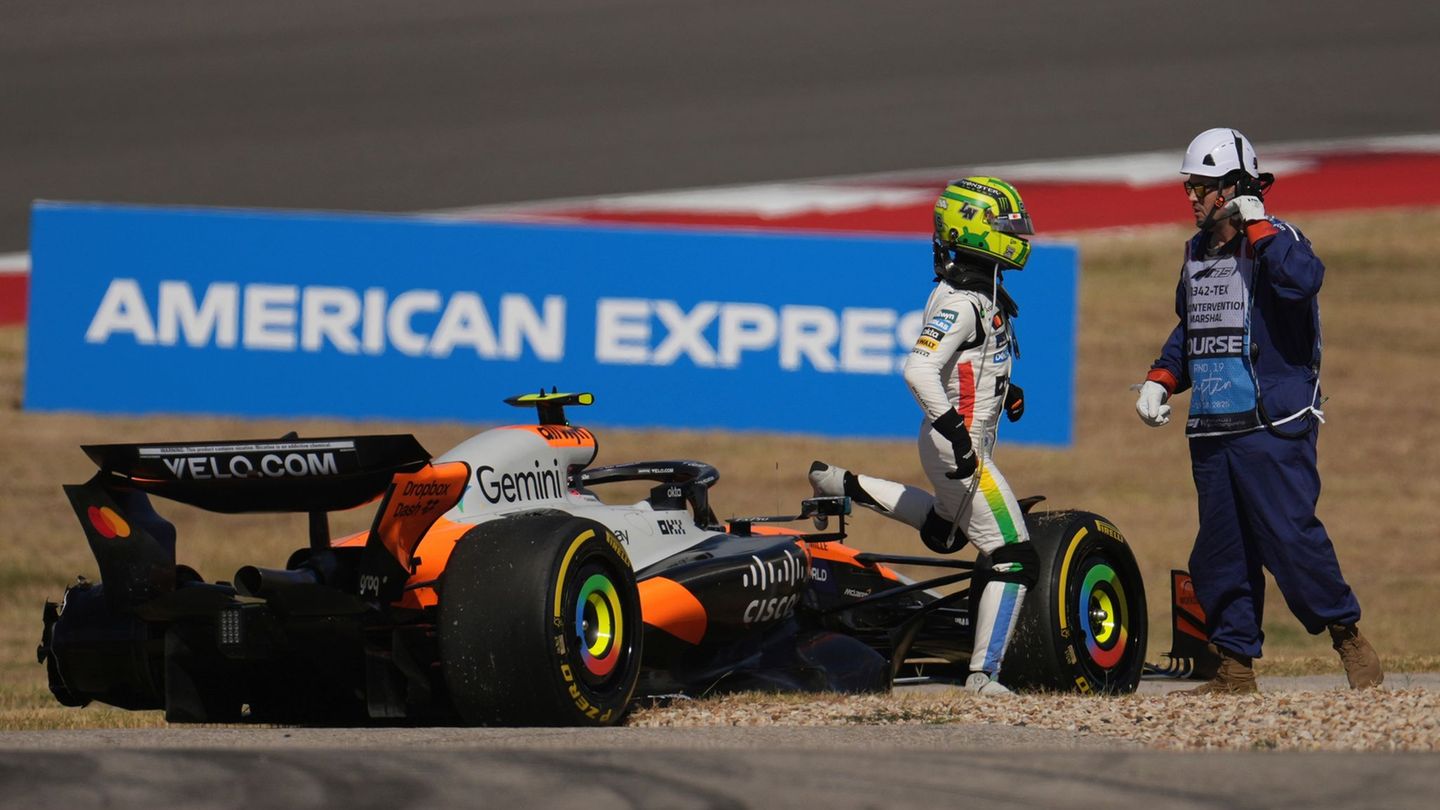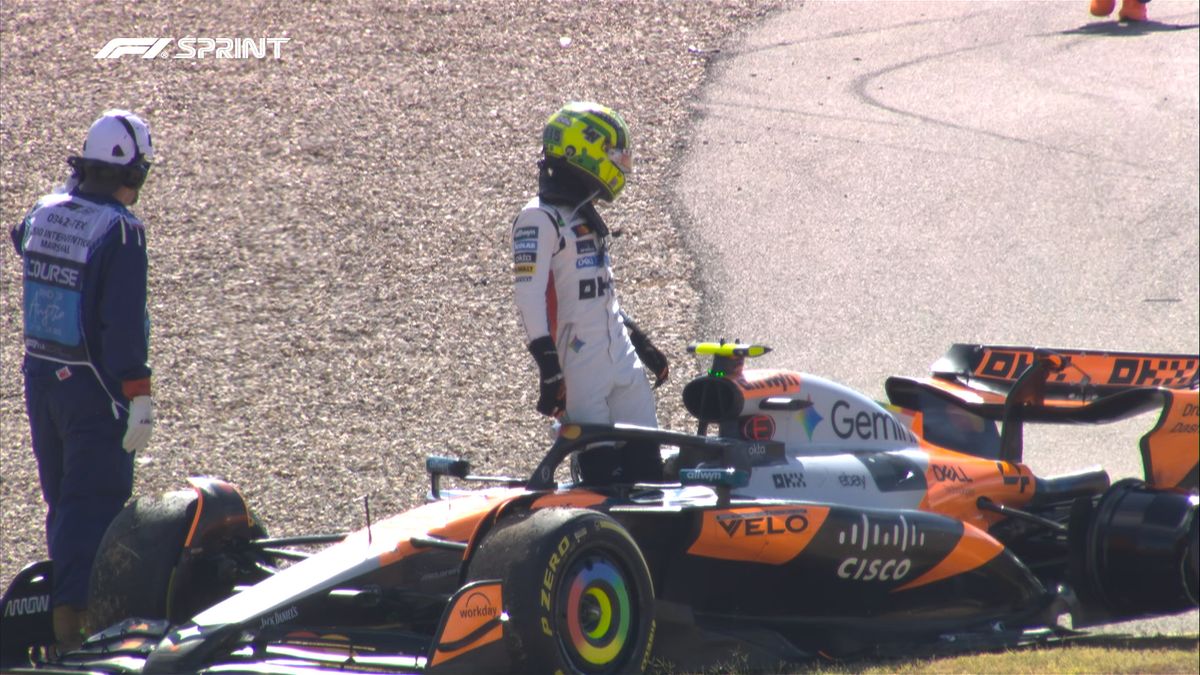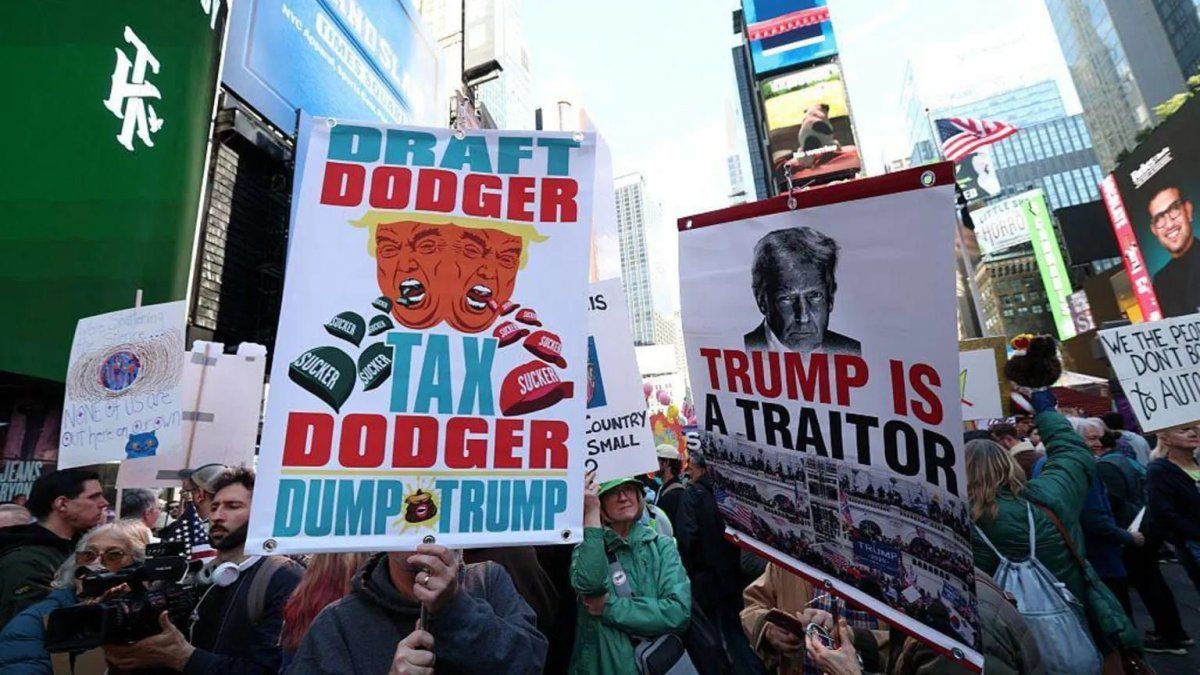The agents, several on motorcycles and on horseback, tried to disperse the demonstrators with tear gas and water jets launched by anti-riot vehicles.
repression Ecuador.mp4
The police repression of the protests on 12 de Octubre avenue, in the surroundings of the Catholic University in Quito.
The police presence was strong in the sector, where there is also the House of Ecuadorian Culture (CCE), which has traditionally been the meeting point for the indigenous people.
But this time the police installed their headquarters in this building surrounded by mirrors to control the protests called by the powerful Confederation of Indigenous Nationalities (Conaie).
There were also pockets of demonstrations in the south of Quito and near the state-owned Central University (north), according to the police.
Ecuador protests.mp4
The protests in Ecuador have reached their ninth day.
Wounded
The Alliance of Human Rights Organizations reported 79 civilians arrested and 55 injured since the beginning of the protests.
The police also reported 79 soldiers injured and another 27 retained by protesters but later released.
In almost a year, diesel has risen 90% (to $1.90) and regular gasoline 46% (to $2.55). Since last October prices have been frozen by social pressure.
The Conaie, led by Leonidas Iza, claims to lower them to 1.50 and 2.10 dollars, respectively.
https://twitter.com/radio_pichincha/status/1539342770837520386
After nine days of protests in various parts of the country that blocked roads with burning tires and affected oil production, Defense Minister Luis Lara said that “Ecuador’s democracy is at serious risk.”
“The Armed Forces will not allow attempts to break the constitutional order or any action against democracy and the laws of the Republic,” added Lara, who also spoke on behalf of the Army, Navy and Air Force.
The opposition Conaie participated in revolts that overthrew three presidents between 1997 and 2005.
The ECU911 Security Service estimated that some 10,000 protesters were in Quitoa city of three million inhabitants.
Six Ecuadorian provinces are under a state of emergency, through which the Executive mobilized the military and implemented a seven-hour night curfew.
https://twitter.com/pvillegas_tlSUR/status/1539373820431171585
A young man died on Monday after falling into a ravine outside Quito where there were demonstrations, police said, indicating it was an accident. However, the prosecution decided to open an investigation for alleged homicide.
The prosecutor’s office was also stoned by protesters, and its glass doors were smashed.
The mayor of Quito, Santiago Guarderas, said on Twitter that the demonstrations “continue to escalate and seriously compromise peace” and that the capital’s markets “are running out of supplies.”
The government estimates that for each day of protest the country, whose economy is dollarized, loses some US$50 million, without taking into account the oil sector, the main export product.
The manager of the state petroecuador, Ítalo Cedeño indicated that crude oil production fell by about 100,000 barrels per day (bd), 21% of the total, due to protests in the Amazon jungle, where the wells are located.
claim
The natives also demand that the Executive control the prices of agricultural products to improve their family economies, employment and more budget for health and education.in addition to a one-year moratorium for the payment of bank credits and suspension of mining concessions in their territories.
In a new gesture to seek solutions, President Lasso posted a letter on Twitter in which he agreed to participate in “a frank and respectful dialogue process with Conaie and other civil organizations.”
“It is our duty to reach consensus for the good of the country,” Lasso wrote.
Iza responded through social networks that will be pronounced later.
The president, who took office in May 2021, has denounced that the indigenous movement wants to “throw him out.”
In 2019, he starred in violent protests that left 11 dead, more than 1,000 injured and forced former President Lenín Moreno to back down on a plan to eliminate fuel subsidies as part of an agreement with the International Monetary Fund (IMF).
Source: Ambito
David William is a talented author who has made a name for himself in the world of writing. He is a professional author who writes on a wide range of topics, from general interest to opinion news. David is currently working as a writer at 24 hours worlds where he brings his unique perspective and in-depth research to his articles, making them both informative and engaging.




